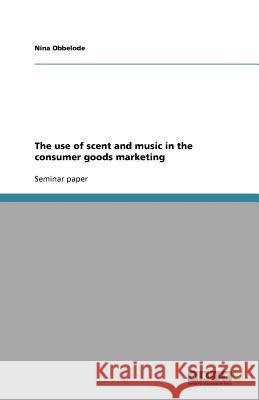The use of scent and music in the consumer goods marketing » książka
The use of scent and music in the consumer goods marketing
ISBN-13: 9783638941549 / Angielski / Miękka / 2008 / 36 str.
Seminar paper from the year 2008 in the subject Business economics - Marketing, Corporate Communication, CRM, Market Research, Social Media, grade: gut, Nurtingen University, course: Preparatory Masterthesis, 14 entries in the bibliography, language: English, abstract: "The mind is like an iceberg, it floats with one-seventh of its bulk above water" (Sigmund Freud, psychologist). According to Freud's quotation, the main part of the mind is beneath the water and is called the subconscious. That means people are sometimes in a certain mood, think and act automatically without knowing the reasons. Wants arise from the subconscious mind; and manipulating the customer's wants is exactly what marketing experts in department stores would like to achieve. So the question is, if there are possibilities to influence the client's shopping habits in order to maximise the profit. For a long time, specialists in department stores have only concentrated on the aware visual, gustatory and haptical sense and have neglected the acoustical and especially the olfactory one. The customer could look at the products, could try foods in the supermarkets at cheese or sausage counters and were allowed to touch the goods. A specific smell or a sound used to be considered to be less important in the consumer goods marketing. It is true that 83% of sensations are received by the eyes. However, the more senses are addressed, the more information can be processed (cp. Fosken, 2006, p. 31). Nowadays, the subliminal manipulation of the costumer gets more and more in the focus of the smart salesmen. Because of a strong competition on the saturated consumer good market, a holistic strategy is needed to distinguish the products from the competitors. An experience-driven marketing strategy, which activates all five senses, becomes the new trend. In this term paper, the focus is going to be on the use of scent and music in department stores and shops. I establish the hypothesis that the two stimuli ha











